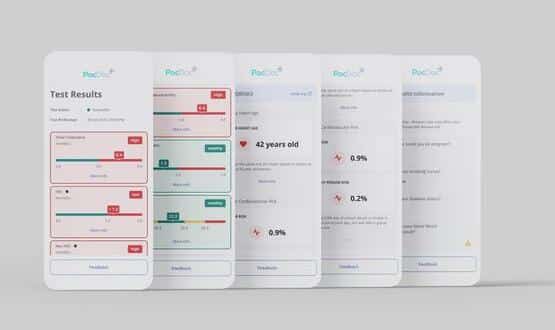The loneliness of being first
- 7 February 2005
The IT industry has a phrase for being at the front of the queue for any complex new technology: being at the ‘bleeding edge’ of development. This is where Undercliffe GP practice in Batley, West Yorkshire has been since last August when it began work to become the first Spine-enabled primary care computer system under the NHS National Programme for IT (NPfIT).
Due to their urgent need to upgrade their IT systems the practice agreed to be an early adopter of a new primary care system provided by their local service provider (LSP) Accenture. They then found they were to become the first practice in England to get a system connected to the Spine.
The Spine is the key infrastructure for the development of the NHS Care Records Service – the system of electronic patient records promised by 2010 and all the other services to be delivered by the NHS IT modernisation programme.
"We didn’t realise that we’d be the first in the country," Dr Paul Glover, partner and IT lead at the practice told EHI primary Care.
Benefits have included a brand new computer system, Synergy from iSOFT, together with new hardware, replacing decrepit 486 PCs "that were incredibly slow". To use the new system staff must use smart cards and pin numbers. "The new system is up and running and better than what we had before," said Dr Glover.
Dr Glover, though an enthusiast of NHS computer modernisation and full of praise for the work and commitment of everyone involved in the project, particularly practice manager Margaret Clark, said the first site nationally has also proven an exhausting and disruptive experience. And the practice does not yet have any clinical functionality they didn’t have before.
"The team from Accenture and the PCT have been camped out in the practice since August. "Our overall experience has been very positive but it’s been a lot of work, it’s taken longer and we’re concerned the new system is not reliable enough yet," said Dr Glover.
"It’s been quite a protracted process, but the connection to the Spine is now up and running. Though there have been some issues with that," he explained.
So far the Spine patient record only hold very basic patient information such as date of birth, name and address. And because they are the only practice yet connected to the Spine they cannot share information with anyone else. Dr Glover said it was a bit like having the only phone in the world. "At the moment there’s nobody to ring."
While he could "see the potential down the line" of the national Spine record that could be shared, he was unclear what would eventually be on the Spine. "At the moment we don’t know what sort of level of information we will get."
"There are some reliability issues still. It’s not the most stable system and does crash from time to time," explained Dr Glover. "But as a pilot practice we understood that it would not be easy.
The biggest of the outstanding technical problems is the amount of time it takes to call up a patient’s details from the Spine – something the system is meant to do almost instantaneously.
"When a patient’s identification number was entered it was taking up to two minutes, they’ve now got that down to about half a minute," said Dr Glover. He added that while half a minute might be okay when seeing a patient in a consultation "but too long when speaking to a patient on the phone".
Asked whether the practice was preparing yet to implement Choose and Book Dr Glover said that they needed time to bed down the new system first. "Our overall experience has been very positive, but we need six months before we’d implement anything else."
See also:
First spine-connected GP system goes live




